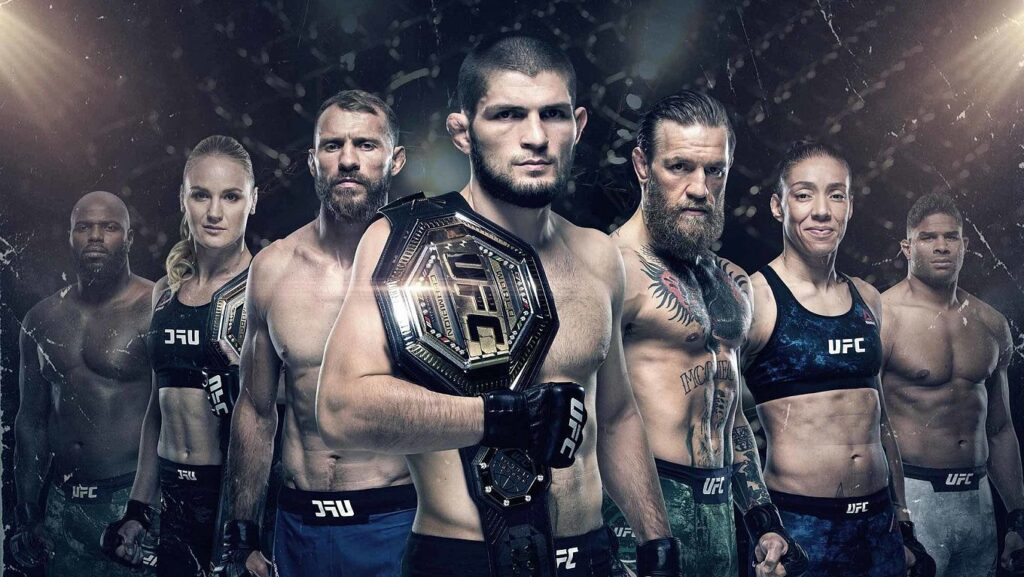The Ultimate Fighting Championship (UFC) has evolved from a fringe spectacle into a global sporting phenomenon. Founded in 1993, the UFC introduced a revolutionary concept to the world of martial arts: a no-holds-barred tournament where fighters of different disciplines would face off in a true test of combat skills.
Origins and Evolution of Ultimate Fighting Championship
From its humble beginnings in Denver, Colorado, the Ultimate Fighting Championship sparked both intrigue and controversy. Initially marketed as a no-rules fighting competition, it captured the imagination of fight fans and skeptics alike. However, early events needed more structure and rules, leading to concerns about fighter safety and the future of the sport.
Rules and Regulations: Shaping a New Era
In response to criticism and regulatory challenges, the UFC implemented stringent rules to ensure fighter safety and promote fair competition. Weight classes were introduced, along with prohibitions against certain strikes and techniques deemed excessively dangerous. These changes were pivotal in transforming the UFC into a legitimate sport.
Rise of Superstars: The Era of McGregor and Rousey
The UFC’s popularity surged with the emergence of charismatic fighters such as Conor McGregor and Ronda Rousey. McGregor’s brash persona and knockout power attracted mainstream attention, while Rousey’s dominance in women’s MMA broke barriers and shattered stereotypes. Their contributions not only elevated the UFC’s profile but also broadened its global appeal.
Global Expansion and Cultural Impact
Beyond the United States, the Ultimate Fighting Championship expanded its reach globally, staging events in major cities across continents. This expansion cultivated a diverse fan base and introduced new talent from around the world. Countries like Brazil, Ireland, and Russia became hotbeds for MMA talent, further enriching the UFC’s roster and enhancing its international stature.
Television and Pay-Per-View: Changing the Broadcasting Landscape
Television and pay-per-view deals played a crucial role in the UFC’s growth. Partnerships with networks like ESPN and lucrative broadcasting agreements brought UFC fights into millions of homes worldwide. The promotion’s ability to adapt to changing media landscapes and embrace digital platforms ensured its continued relevance in the digital age.
The Ultimate Fighter: Reality TV and Talent Discovery
“The Ultimate Fighter,” a reality TV series produced by the UFC, provided unprecedented insight into the lives of fighters and their journey to success. The show not only entertained viewers but also served as a talent pipeline, discovering future champions and fan favorites. Its impact on the sport’s popularity cannot be overstated.
Controversies and Challenges: Navigating a Complex Landscape
Despite its successes, the UFC has faced its share of controversies. Issues like fighter pay, drug testing, and regulatory hurdles have sparked debates within the MMA community and beyond. However, the UFC’s willingness to address these challenges head-on has reinforced its commitment to the sport’s integrity and long-term sustainability.
Beyond the Octagon: Community and Legacy
Beyond the spectacle of fights, the UFC has cultivated a sense of community among its fans and fighters. Charitable initiatives, outreach programs, and fighter advocacy efforts underscore the promotion’s commitment to making a positive impact beyond the octagon. This holistic approach ensures that the UFC’s legacy extends far beyond its sporting achievements.
Conclusion: The Future of the UFC
The Ultimate Fighting Championship has transcended its origins to become a global powerhouse in sports entertainment. Through innovation, adaptation, and the sheer dedication of its athletes, the UFC continues to push boundaries and redefine what it means to be a combat sport. As it looks to the future, the UFC remains steadfast in its mission to deliver thrilling, competitive action while inspiring the next generation of fighters and fans alike.
